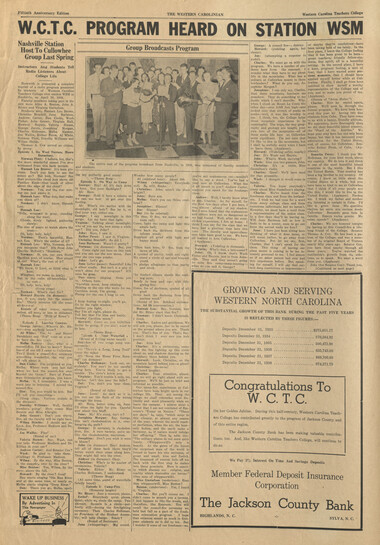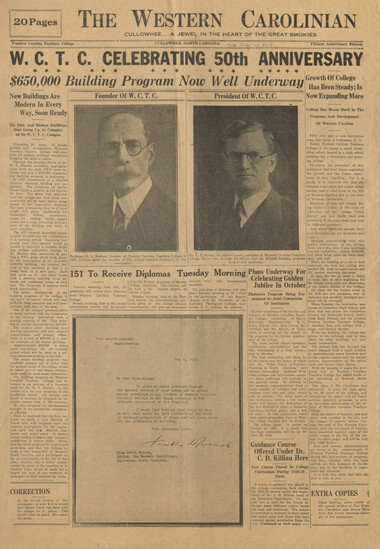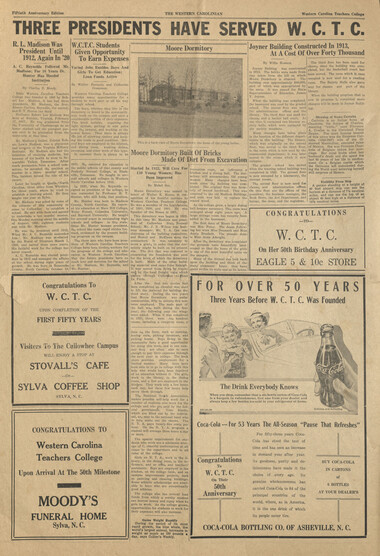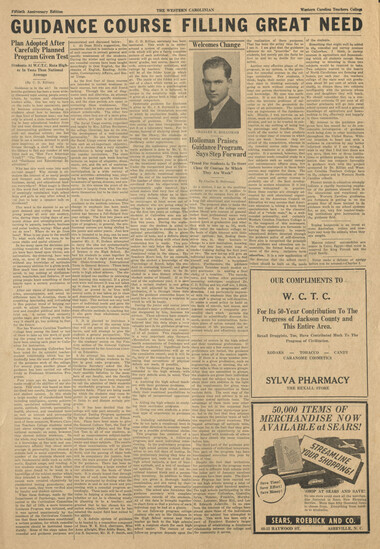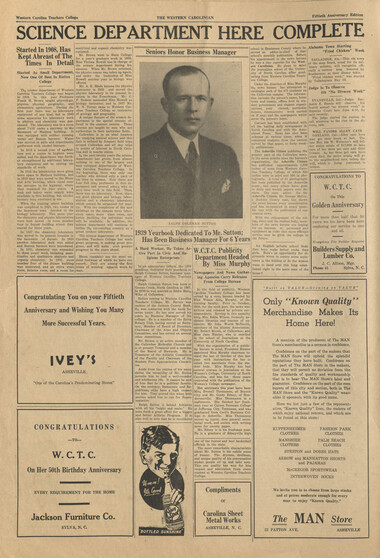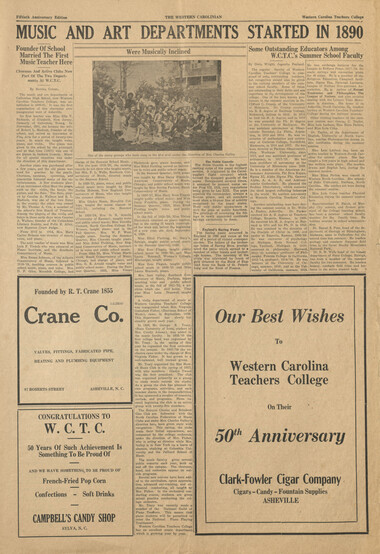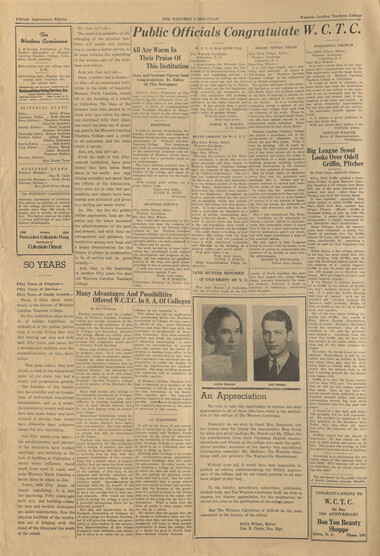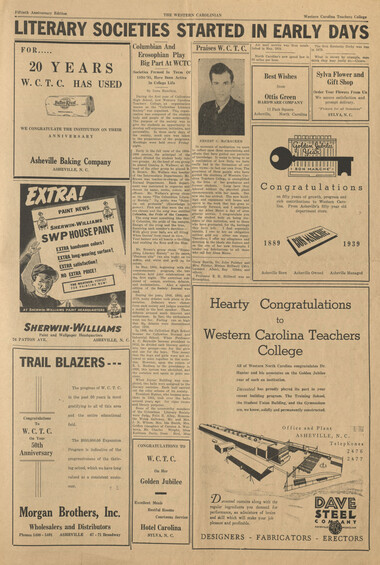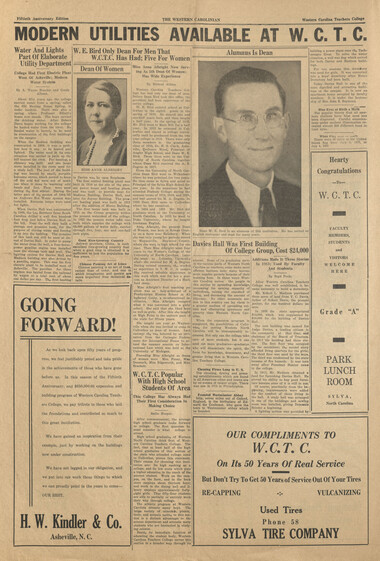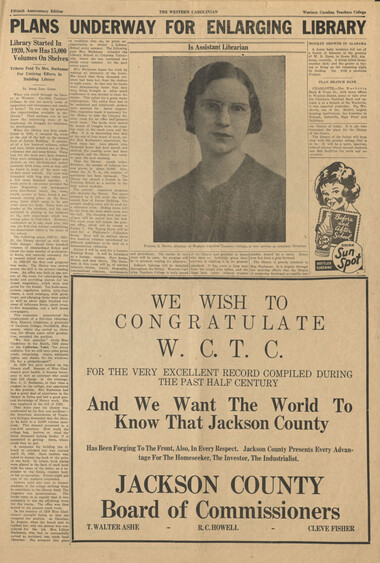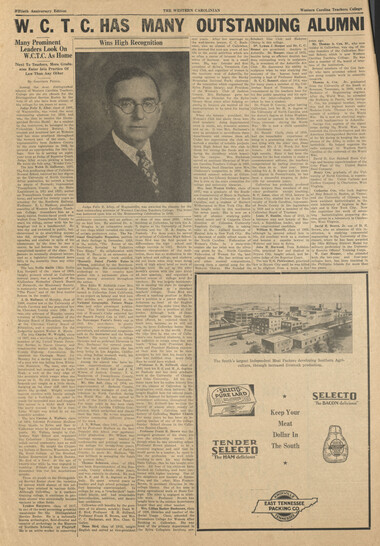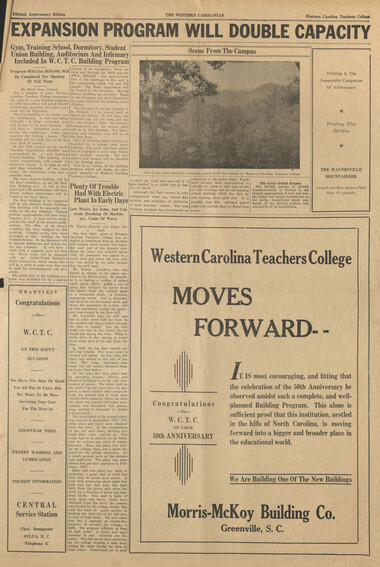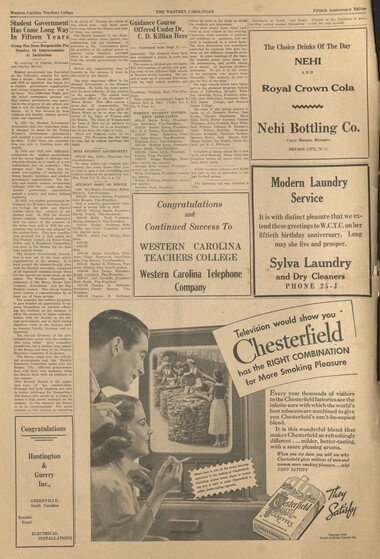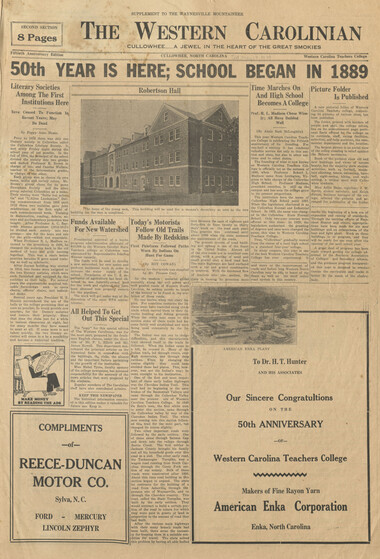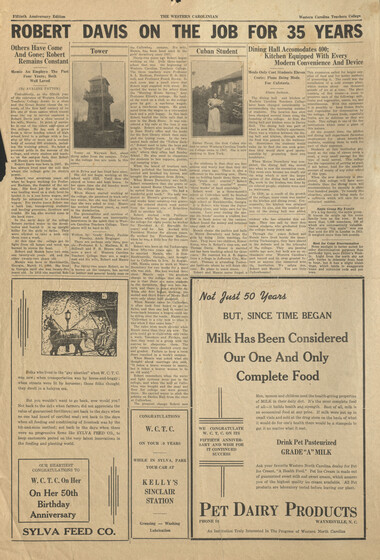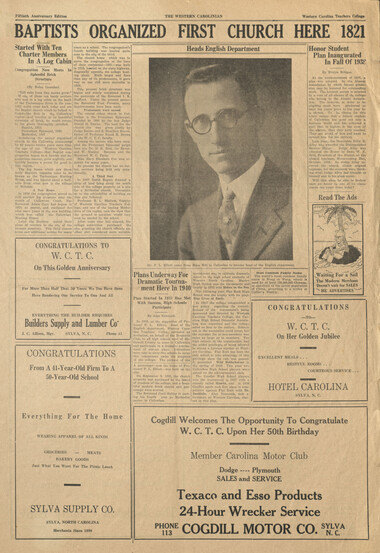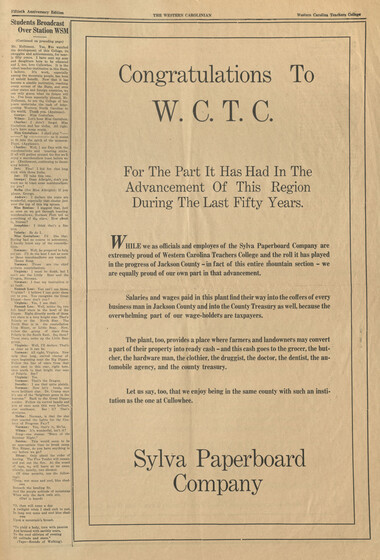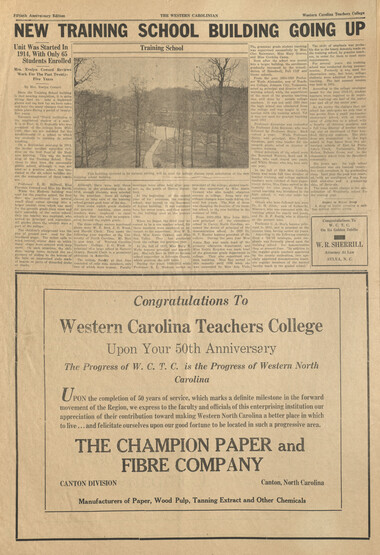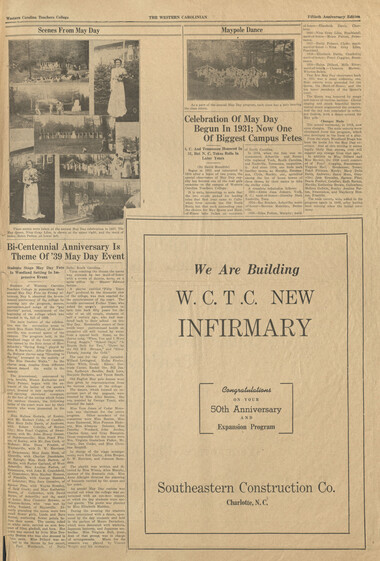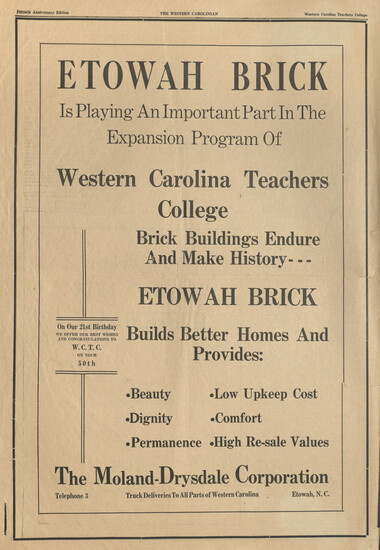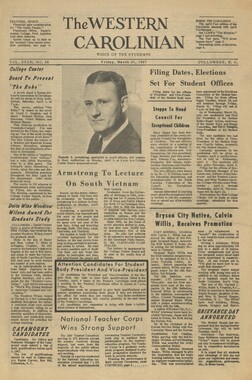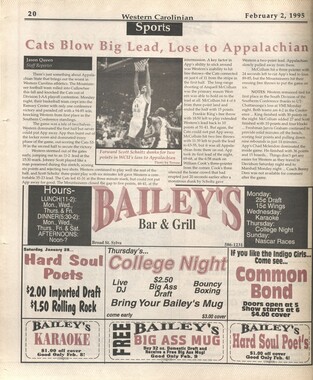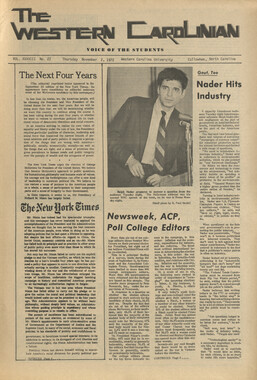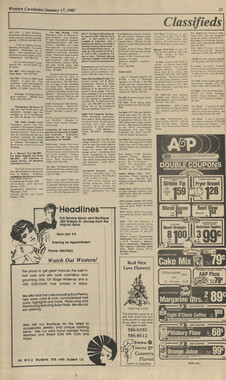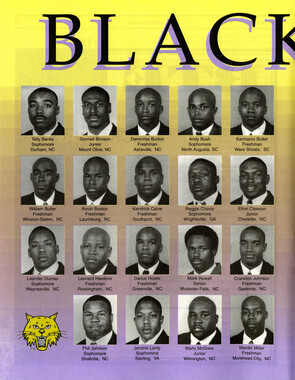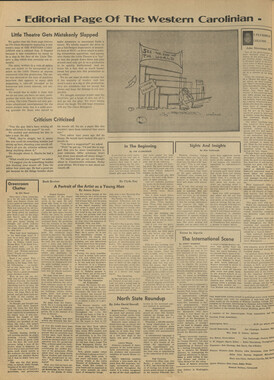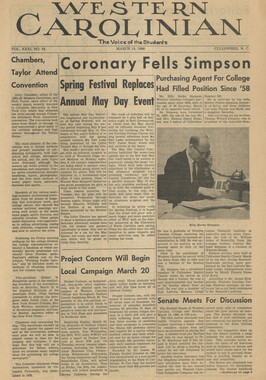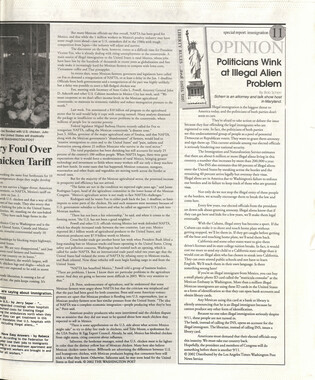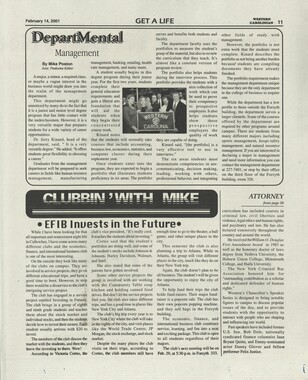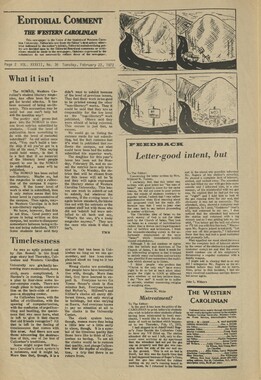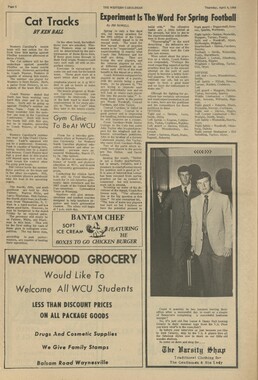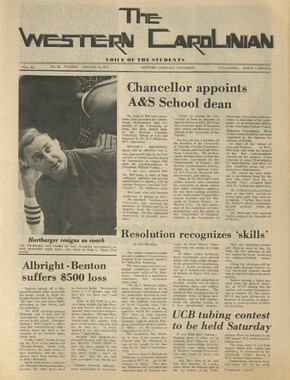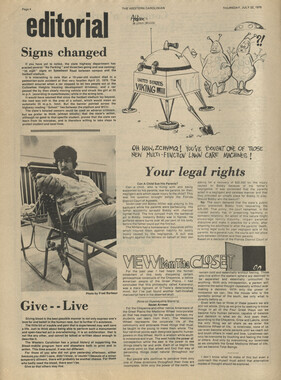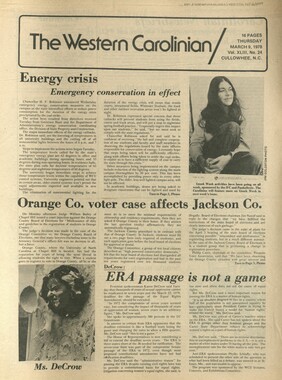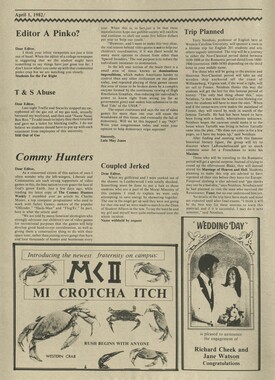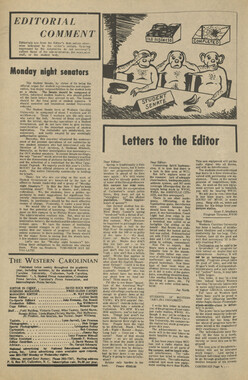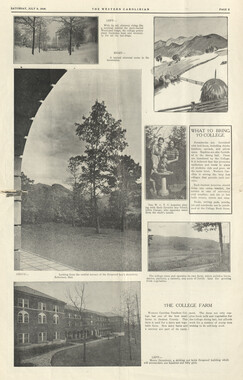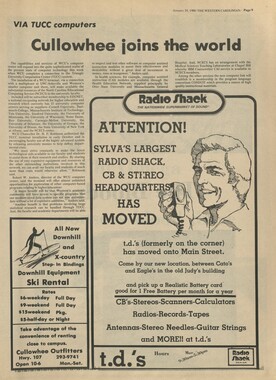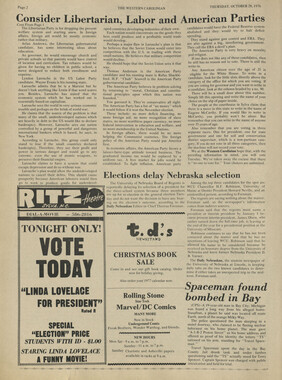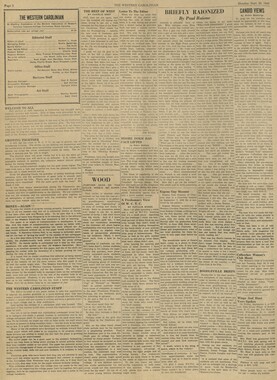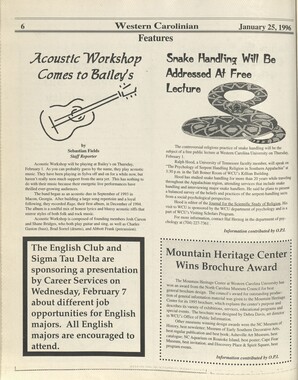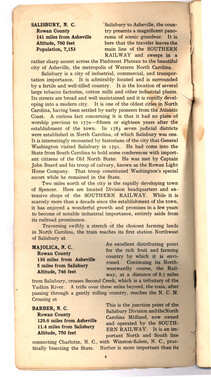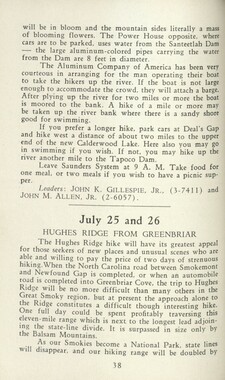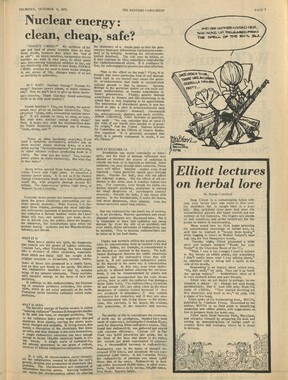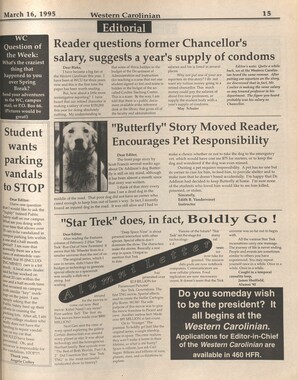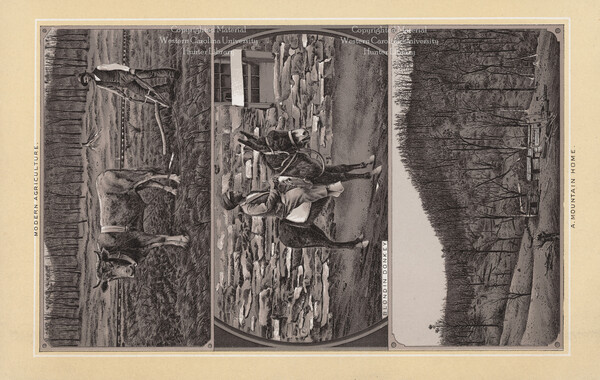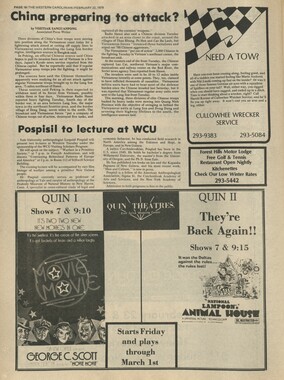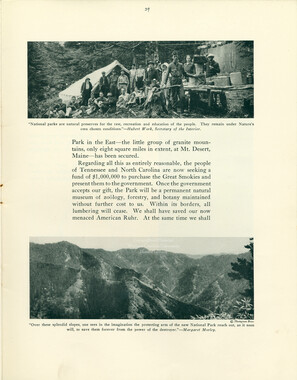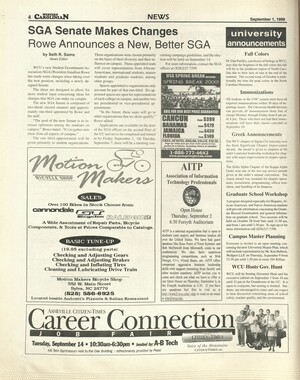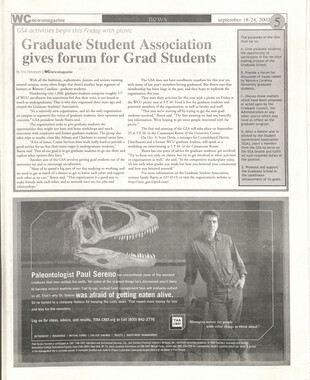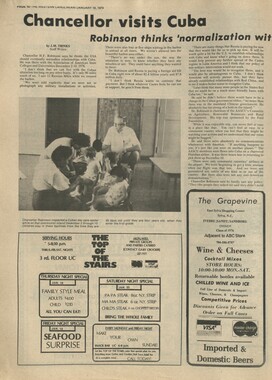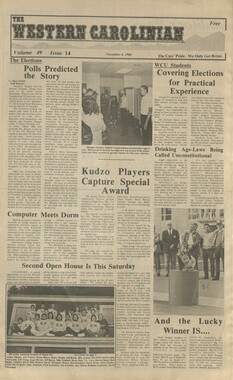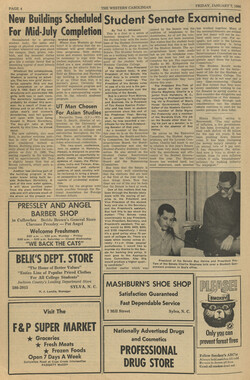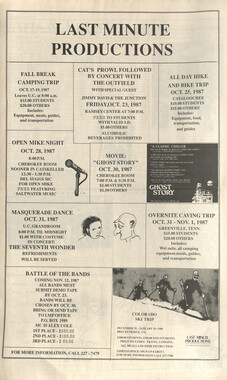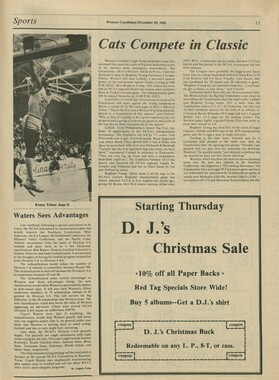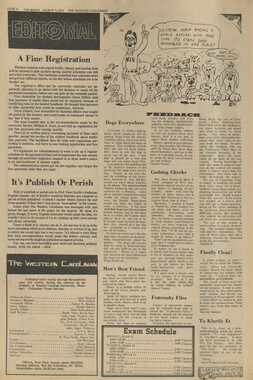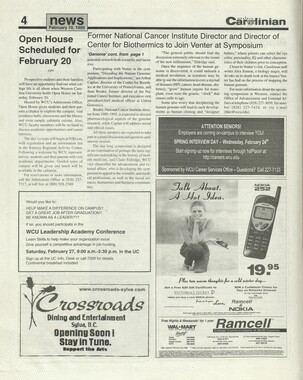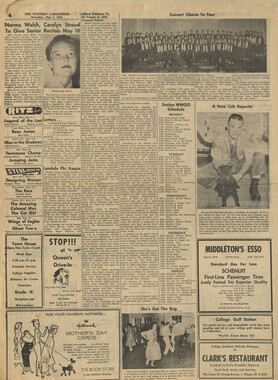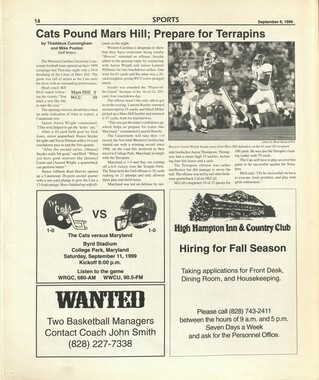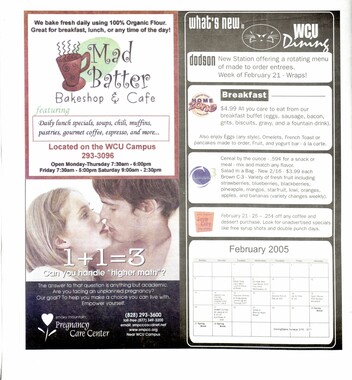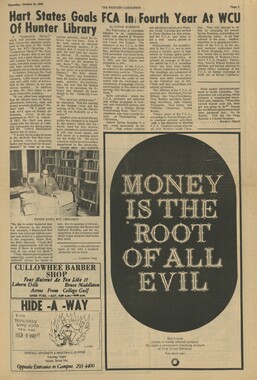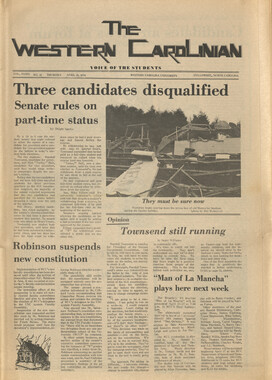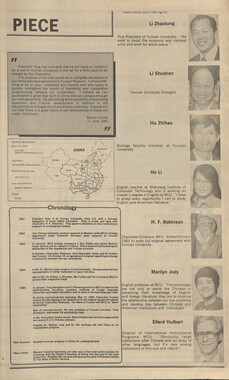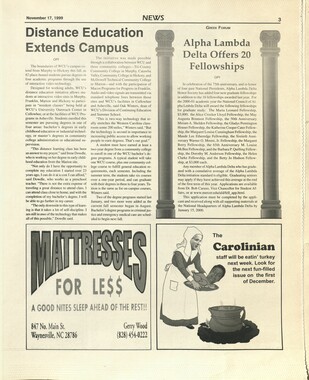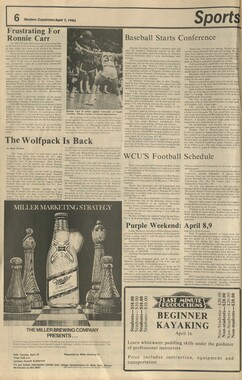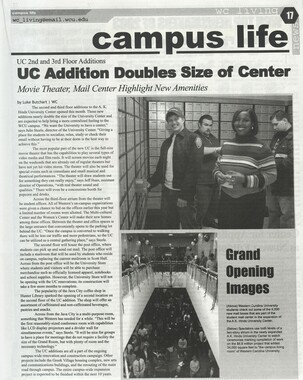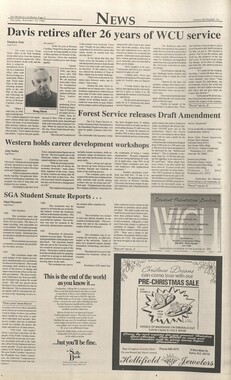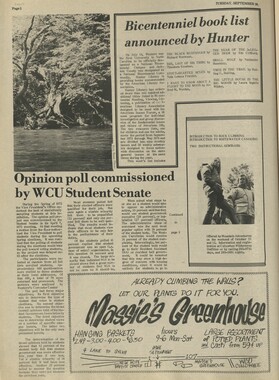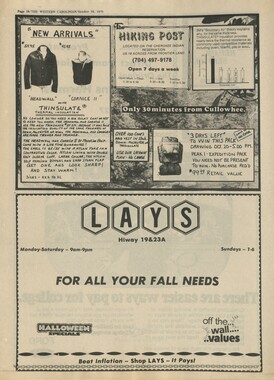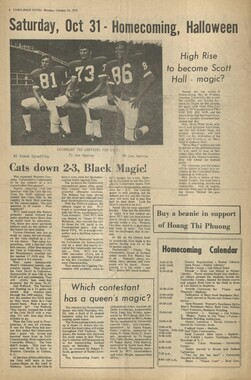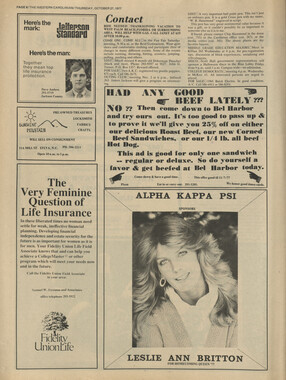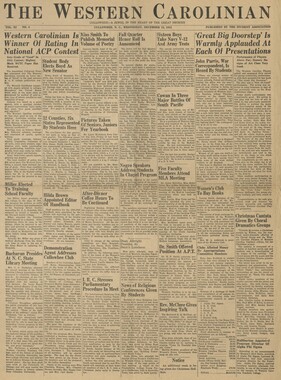Western Carolina University (20)
View all
- Canton Champion Fibre Company (2308)
- Cherokee Traditions (291)
- Civil War in Southern Appalachia (165)
- Craft Revival (1942)
- Great Smoky Mountains - A Park for America (2946)
- Highlights from Western Carolina University (430)
- Horace Kephart (941)
- Journeys Through Jackson (159)
- LGBTQIA+ Archive of Jackson County (85)
- Oral Histories of Western North Carolina (314)
- Picturing Appalachia (6873)
- Stories of Mountain Folk (413)
- Travel Western North Carolina (160)
- Western Carolina University Fine Art Museum Vitreograph Collection (129)
- Western Carolina University Herbarium (92)
- Western Carolina University: Making Memories (738)
- Western Carolina University Publications (2488)
- Western Carolina University Restricted Electronic Theses and Dissertations (146)
- Western North Carolina Regional Maps (71)
- World War II in Southern Appalachia (131)
University of North Carolina Asheville (6)
View all
- Allanstand Cottage Industries (62)
- Appalachian National Park Association (53)
- Bennett, Kelly, 1890-1974 (1463)
- Berry, Walter (76)
- Brasstown Carvers (40)
- Carver, George Washington, 1864?-1943 (26)
- Cathey, Joseph, 1803-1874 (1)
- Champion Fibre Company (233)
- Champion Paper and Fibre Company (297)
- Cherokee Indian Fair Association (16)
- Cherokee Language Program (22)
- Crowe, Amanda (40)
- Edmonston, Thomas Benton, 1842-1907 (7)
- Ensley, A. L. (Abraham Lincoln), 1865-1948 (275)
- Fromer, Irving Rhodes, 1913-1994 (70)
- George Butz (BFS 1907) (46)
- Goodrich, Frances Louisa (120)
- Grant, George Alexander, 1891-1964 (96)
- Heard, Marian Gladys (60)
- Kephart, Calvin, 1883-1969 (15)
- Kephart, Horace, 1862-1931 (313)
- Kephart, Laura, 1862-1954 (39)
- Laney, Gideon Thomas, 1889-1976 (439)
- Masa, George, 1881-1933 (61)
- McElhinney, William Julian, 1896-1953 (44)
- Niggli, Josephina, 1910-1983 (10)
- North Carolina Park Commission (105)
- Osborne, Kezia Stradley (9)
- Owens, Samuel Robert, 1918-1995 (11)
- Penland Weavers and Potters (36)
- Roberts, Vivienne (15)
- Roth, Albert, 1890-1974 (142)
- Schenck, Carl Alwin, 1868-1955 (1)
- Sherrill's Photography Studio (2565)
- Southern Highland Handicraft Guild (127)
- Southern Highlanders, Inc. (71)
- Stalcup, Jesse Bryson (46)
- Stearns, I. K. (213)
- Thompson, James Edward, 1880-1976 (226)
- United States. Indian Arts and Crafts Board (130)
- USFS (683)
- Vance, Zebulon Baird, 1830-1894 (1)
- Weaver, Zebulon, 1872-1948 (58)
- Western Carolina College (230)
- Western Carolina Teachers College (282)
- Western Carolina University (2005)
- Western Carolina University. Mountain Heritage Center (18)
- Whitman, Walt, 1819-1892 (10)
- Wilburn, Hiram Coleman, 1880-1967 (73)
- Williams, Isadora (3)
- Cain, Doreyl Ammons (0)
- Crittenden, Lorraine (0)
- Rhodes, Judy (0)
- Smith, Edward Clark (0)
- Appalachian Region, Southern (2569)
- Asheville (N.C.) (1923)
- Avery County (N.C.) (26)
- Blount County (Tenn.) (195)
- Buncombe County (N.C.) (1672)
- Cherokee County (N.C.) (283)
- Clay County (N.C.) (555)
- Graham County (N.C.) (236)
- Great Smoky Mountains National Park (N.C. and Tenn.) (519)
- Haywood County (N.C.) (3569)
- Henderson County (N.C.) (70)
- Jackson County (N.C.) (4909)
- Knox County (Tenn.) (35)
- Knoxville (Tenn.) (13)
- Lake Santeetlah (N.C.) (10)
- Macon County (N.C.) (420)
- Madison County (N.C.) (215)
- McDowell County (N.C.) (39)
- Mitchell County (N.C.) (132)
- Polk County (N.C.) (35)
- Qualla Boundary (982)
- Rutherford County (N.C.) (76)
- Swain County (N.C.) (2182)
- Transylvania County (N.C.) (270)
- Watauga County (N.C.) (12)
- Waynesville (N.C.) (86)
- Yancey County (N.C.) (72)
- Aerial Photographs (3)
- Aerial Views (60)
- Albums (books) (4)
- Articles (1)
- Artifacts (object Genre) (228)
- Bibliographies (1)
- Biography (general Genre) (2)
- Cards (information Artifacts) (38)
- Clippings (information Artifacts) (191)
- Copybooks (instructional Materials) (3)
- Crafts (art Genres) (622)
- Depictions (visual Works) (21)
- Design Drawings (1)
- Drawings (visual Works) (185)
- Envelopes (73)
- Exhibitions (events) (1)
- Facsimiles (reproductions) (1)
- Fiction (general Genre) (4)
- Financial Records (12)
- Fliers (printed Matter) (67)
- Glass Plate Negatives (381)
- Guidebooks (2)
- Internegatives (10)
- Interviews (815)
- Land Surveys (102)
- Letters (correspondence) (1013)
- Manuscripts (documents) (618)
- Maps (documents) (177)
- Memorandums (25)
- Minutes (administrative Records) (59)
- Negatives (photographs) (6090)
- Newsletters (1290)
- Newspapers (2)
- Notebooks (8)
- Occupation Currency (1)
- Paintings (visual Works) (1)
- Pen And Ink Drawings (1)
- Periodicals (193)
- Personal Narratives (10)
- Photographs (12976)
- Plans (maps) (1)
- Poetry (5)
- Portraits (4568)
- Postcards (329)
- Programs (documents) (181)
- Publications (documents) (2440)
- Questionnaires (65)
- Relief Prints (26)
- Sayings (literary Genre) (1)
- Scrapbooks (282)
- Sheet Music (2)
- Slides (photographs) (402)
- Songs (musical Compositions) (2)
- Sound Recordings (796)
- Specimens (92)
- Speeches (documents) (18)
- Tintypes (photographs) (8)
- Transcripts (322)
- Video Recordings (physical Artifacts) (23)
- Text Messages (0)
- A.L. Ensley Collection (275)
- Appalachian Industrial School Records (7)
- Appalachian National Park Association Records (336)
- Axley-Meroney Collection (2)
- Bayard Wootten Photograph Collection (20)
- Bethel Rural Community Organization Collection (7)
- Blumer Collection (5)
- C.W. Slagle Collection (20)
- Canton Area Historical Museum (2110)
- Carlos C. Campbell Collection (462)
- Cataloochee History Project (64)
- Cherokee Studies Collection (4)
- Daisy Dame Photograph Album (5)
- Daniel Boone VI Collection (1)
- Doris Ulmann Photograph Collection (112)
- Elizabeth H. Lasley Collection (1)
- Elizabeth Woolworth Szold Fleharty Collection (4)
- Frank Fry Collection (95)
- George Masa Collection (173)
- Gideon Laney Collection (452)
- Hazel Scarborough Collection (2)
- Hiram C. Wilburn Papers (28)
- Historic Photographs Collection (236)
- Horace Kephart Collection (861)
- Humbard Collection (33)
- Hunter and Weaver Families Collection (1)
- I. D. Blumenthal Collection (4)
- Isadora Williams Collection (4)
- Jesse Bryson Stalcup Collection (47)
- Jim Thompson Collection (224)
- John B. Battle Collection (7)
- John C. Campbell Folk School Records (80)
- John Parris Collection (6)
- Judaculla Rock project (2)
- Kelly Bennett Collection (1482)
- Love Family Papers (11)
- Major Wiley Parris Civil War Letters (3)
- Map Collection (12)
- McFee-Misemer Civil War Letters (34)
- Mountain Heritage Center Collection (4)
- Norburn - Robertson - Thomson Families Collection (44)
- Pauline Hood Collection (7)
- Pre-Guild Collection (2)
- Qualla Arts and Crafts Mutual Collection (12)
- R.A. Romanes Collection (681)
- Rosser H. Taylor Collection (1)
- Samuel Robert Owens Collection (94)
- Sara Madison Collection (144)
- Sherrill Studio Photo Collection (2558)
- Smoky Mountains Hiking Club Collection (616)
- Stories of Mountain Folk - Radio Programs (374)
- The Reporter, Western Carolina University (510)
- Venoy and Elizabeth Reed Collection (16)
- WCU Gender and Sexuality Oral History Project (32)
- WCU Mountain Heritage Center Oral Histories (25)
- WCU Oral History Collection - Mountain People, Mountain Lives (71)
- WCU Students Newspapers Collection (1920)
- Western North Carolina Tomorrow Black Oral History Project (69)
- William Williams Stringfield Collection (2)
- Zebulon Weaver Collection (109)
- African Americans (390)
- Appalachian Trail (35)
- Artisans (521)
- Cherokee art (84)
- Cherokee artists -- North Carolina (10)
- Cherokee language (21)
- Cherokee pottery (101)
- Cherokee women (208)
- Church buildings (189)
- Civilian Conservation Corps (U.S.) (111)
- College student newspapers and periodicals (2009)
- Dams (107)
- Dance (1023)
- Education (222)
- Floods (61)
- Folk music (1015)
- Forced removal, 1813-1903 (2)
- Forest conservation (220)
- Forests and forestry (1184)
- Gender nonconformity (4)
- Great Smoky Mountains National Park (N.C. and Tenn.) (181)
- Hunting (45)
- Landscape photography (25)
- Logging (119)
- Maps (83)
- Mines and mineral resources (8)
- North Carolina -- Maps (18)
- Paper industry (38)
- Postcards (255)
- Pottery (135)
- Railroad trains (72)
- Rural electrification -- North Carolina, Western (3)
- School integration -- Southern States (2)
- Segregation -- North Carolina, Western (5)
- Slavery (5)
- Sports (452)
- Storytelling (243)
- Waterfalls -- Great Smoky Mountains (N.C. and Tenn.) (66)
- Weaving -- Appalachian Region, Southern (280)
- Wood-carving -- Appalachian Region, Southern (328)
- World War, 1939-1945 (173)
Western Carolinian Volume 07 50th Anniversary
Item
Item’s are ‘child’ level descriptions to ‘parent’ objects, (e.g. one page of a whole book).
-
-
Fiftieth Anniversary Edition THE WESTERN CAROLINIAN Western Carolina Teachers College W.C.T.C. PROGRAM HEARD ON STATION WSM Nashville Station Host To Cullowhee Group Last Spring Instructors And Students Tell Radio Listeners About College Life Herewith is presented a complete reprint of a radio program presented by students oi Teachers College over station WSM Nashville, on April 89, 1988. Faculty members taking part i" the Alice a. Benton, John A. ■ml Virginia Gustafaon. Students weit. Hannah LOU Brown, Christine Broyhill, June Burleson, Andrew Carter, Dan Cooke, Wash fisher, John Cesser, Virginia Hall, Howard Haynie, Valerie Hamm, George Jarvis, Josephine' Morgan, Charles Holloman, Melba Nanney, Joe Wallin, Esther Perez, AI White, Norman Plott, Dorothy Williams and Wilma Shilds. Thomas A. Cox served as citizen, by proxy. . Episode 1. On West Terrace, Moore Dormitory. Norman Plott: I believe, too, that's the most wonderful sunset I've ever witnessed from this back terrace. Hannah Lou Brown: It's been glorious. Don't you hate to see the colors go? But look, Norman! See that picture-like cloud just above old Panther Knob—that touch of silver about the edge of the cloud? Norman: Yes, and the star coming out just above it. Hannah Lou: What does that make you think of? Norman: 1 don't know, Hannah Hannah Lou: "'Hills, wrapped In gray, standing along the west; Clouds, dimly lighted, gathering slowly: The star of peace at watch above the crest— Oh, holy, holy, holy! Norman: That's beautiful, Han- nah Lou. Who's the author of it? Hannah Lou: Why, Norman, don't you recognize that? It's from John McNeill's "Sundown.' Norman: O, yes, our own North Carolina poet, of course. How stupid' Of me! What's the rest of it? Hannah Lou: "We know, O Lord, so little what is best; Wtegle lowly; But in thy calm all-knowledge let Oh, holy, holy, holy! (Cong- rings) Norman: What's that for? Howard Haynie (in distance): O yes. 0 yes, ready for the council- fire! Thirty minutes till the coun- Group Broadcasts Program IPOSed Of faculty member Sounds of many voices, various noises, all more or less in distance). (Theme Song: "Hills of Home") Episode 2. Leaving Campus. George Jarvis: Where's Mr. Bitter—does anybody know? AI White: Yes. he and Buster Dandelake and "Red" went on ahea 1 fa have the fire ready. Melba Nanney: Dan, whai ia a council-fire, I'd like to know? Never heard of one till I came to Cullowhee. You'd think a council-fire ceremony something wonderful, the way you all talk about it. Dan Cooke: I'm surprised at you, Melba. Where were you last fall when we had the council-fire over beyond the Coxes? Part of Freshman Orientation program, you know. Melba: O, I remember. I was a week late in "entering. I missed the council-fire. Dan: Yes, you would be late. But Fll tell you something— (Gong rings. Various sounds in the distance). Dorothy Williams: Well, faculty members going! Here comes Miss Benton and Miss Albright. John Cesser: Don't you w'orry, Dot, all the faculty will be right here. Wilma Shields: I should Look, Joe, Professor Madison and Dr. Killian. Joe Wallin: Fine! (Sound of car) Valeria Hamm: Say, Wash, can you take Professor Madison and Dr. Killian in your car? Andrew Carter: And Senator Cox? Wash: Be glad to take them. (Calling) O, Professor Madison. Wilma: By the way, Miss Benton, is the campfu-e over by the river? Miss Benton: Yes, Wilma, by the river, above the fall. Howard: By the river? Good! Dan starts singing "Ole Man River and at the same time, or nearly so Melba starts singing "Deep River." Dan: There you go, Melba, spoil- WAKE UP BUSINESS t By Advertising In | / This Newspaper ing my perfectly good music! , —Theme Song— Episode 3. On Way to Camp George: Hey! AI, it's dark down in here. Got your flashlight? AI: Sure. George: Hold it here a minute so we can see how td get over this footlog. AI: What's the matter with the moonlight, old lady? See by it, or feel your way, either one. George: I say moonlight in this gorge. Let me have that light. Virginia: Talking about moonlight; who of you say the new moon a while ago? Did you, John? John: Sure, I saw it. Esther Perez: I saw it, Virginia. Christine Broyhill; So did I. June Burleson: Wasn't it pretty? Norman: (in distance): Say, you all. Come right out here on this rock and you can see the new moon. Just over the tree tops yonder. John: Let's go. June (after pause): Beaut iful! Like silver cradle. But isn't it a pity it >'on't shine for our program " oon be gone. l>an starts singing, Some join n. Others hum. 'Carolina moon, keep shining, Shining on the one who waits for inc. Carolina moon, I'm pining, Pining for the one I long to see. I keep hoping to-night, you'll go, Go to the right window; Scatter you light, Say I'm all right, please do. Tell her that I'm blue and lonely, Dreamy Carolina moon." Howard: Come on, you hillbillies. Better be going, if you don't want to be late. —Theme Song— Dplsode 4. Near Waterfall . 'Srund of falling water heard) Snatches of two songs sung con- irrently: (1) ''Th re's a Long, Long Trail" lear th" mike) (2) "Keep the Home Fires Burning" (at distance) Charles Holloman: Look out, ev- ■ybody! You can'l be too careful along here. You're likely to get tumble. The river's below you. Virginia: You'd tumble a mile, tc Charles. Isn't this near the falls? Dot: Yes, don't you hear them, Virginia? (Sound of falls) June: Look! As dark : you can see the flash of the wateii through the trees. AI: Here, better come on, June. I'll shine the light for you. Careful now about this bluff. June: My! It's steep, isn't it? Josephine Morgan: Say, George, this isn't rhododendron is it, overhanging the path? George: It certainly is rhododendron, Joe. A rare variety, quite unlike the rhododendron maximum. Josephine: Don't you wish it were John (in distance): Hey! Andrew, tell all of them back there they'd better watch their steps along here. They might fall into the river. Andrew (in distance): Okey. Christine: Who's to be master of ceremonies, Valeria? Valeria: Either Mr. Bitzer or Charles Holloman, I understand. (Theme Song) (At same time, sound of waterfall; faintly heard) Episode a- Camp-Fire (Someone laughs) Mr. Bitzer: Just a moment, please Esther: Everybody quiet, please Quiet, while we circle the camp. Two abreast. Remain in a circle—pel fectly still—during the fire-lighting ceremony. Then Charles Holloman, as President of the Student Assembly, will take charge. Ready T (Sound of footsteps) June (whispering): Bfig crowd. Wonder how many people? AI (subdued tone): About 300. Wilma (whispering): Everybody ill. Be still, Snake. Christine: John, aren't the stars John: Sure are. Melba: Can't you see Orion over- Josephine: Silence! Joe: Silence! Boy (to be selected) To thee, O fire, we make our ancient call; Come, litrht the camp and light this ample hall; Drive back the darkness from this solemn wood; Supplant all grief with light and happy mood. "Thou hast been, O file, from the dawn of life. A symbol of purity, truth and right. We stand a circle of age and buoyant youth To pledge allegiance to that purity and truth. "In hushed silence stands the waiting pyre, Beady to leap and roar with life- giving fire: Come, foe of darkness, symbol of all good Drive back the darkness from this j . ancient wood." (Sound of fire. Subdued tions. Ad lib conversation.) Hannah Lou: Say, Norman, how did Mr. Bitzer start that fire? Norman: I didn't know. Chemicals, I think. Charles: Ladies and gentlemen. We will ask you, please, just to be seated on the ground where you are. Thank you. That's fine of you. That's fine. I don't think I ever saw you look prettier. Joe: Atta boy! Charles: It's a picturesque scene with the fire lighting up this circle about us, and shadows dancing on the shrubbery there behind you. Howard: Look, Christine, on the mountain laurel behind you—a ghost! Christine: Oo-oo-oo! (Crowd laughs). Charles: Your attention, please, and we will go right ahead with our program. We'll be just as brief and informal as possible. Our camp-fire experiences at Cullowhee have been bright spots in our college life. They are among the things we shall remember most distinctly and most pleasantly when wt leave the campus. I seldom enter t forest that I am not reminded of Em- n's "Essay on Nature." "There days," he says, "which occur in climate, at almost any season of the year, wherein the world reach- is perfection, when the air, the heavenly bodies, and the earth make a harmony, as if nature would indulge her offspring." Then he adds this: "The solitary places do not seem quite lonely. (Whippoorwill's note heard). At the gates of the forest the surprised man of the world is forced to leave his city estimates of great and small, wise and foolish. The knapsack of custom falls off hi back with the first step he makes into these precincts. Here is sanctity which shames our religion, and reality which discredits our heroes." (One note of whippoorwill). Miss Gustafaon (undertone): Hear that whippoorwill, Miss Benton? Benton (undertone): Yes, I heard it, Virginia. Charles: But you'll excuse me. I didn't come to preach you a sermon. I just happen to like the woods, and, therefore, like Emerson. You will recall the council-fire ceremony we held last fall as a part of the freshman orientation program. I hope that occasion meant as much to first- year students as it did to me. But I wonder if some of our freshmen—no, you're not sophomores yet—wouldn't like to say a word. You' year now at Cullowhee. What has it all meant to you? Andrew Carter, suppose you speak for the freshman Andrew : Well, I hardly know what to say, Charles. As for myself, for the first few days after I got here, I ' afraid of my shadow. But I soon found that the sophomores and others were not so dangerous as I we had feared. Well, after the coun- I cil-fire experience, I felt at home. I think I can say for the class that we have had a glorious time here this year. The faculty and upper-classmen have been good to me. We have all learned to love Cullowhee. (Applause). Howard: (Yodeling in distance). Valeria; Who's that, a late-comer? John: Oh, I know, that's Wash Fjsher and Haynie. just in from Asheville. They said they weren't going to miss this vhat do j mp-camp-meeting— i call it, George? George: A council Are—, dummy. Howard: (yodeling again, but closer). j«-: (attempting a response to yodel). Charles: We must go on with the program. We have a number of students here from the seacoast. I wonder what they have to say about life in the mountains. What has a sojourn at Cullowhee meant to these low landers? What do you say, Josephine Morgan? Josephine: I can only say, Charles, that these mountains fascinate me somehow. They do something to me inside which 1 can't describe. Why, when I stood on Mount Le Conte the other daj high—and . ill, it was like worship to me. I think, too, the College helps untain experiences to be meaningful The trips, the way geography and geology are taught, your own love of the mountains—all of these make life here at Cullowhee seem significant. I'm not sure that I'd like to live in the mountains, but 1 shall he awfully sorry when I have to leave them. (Applause). Howard: (Yodeling softly, nearby) Joe: It's Wash and Haynie. John: What's Wash carrying? Mash: Give you two guesses, John. Christine: It's a violin, Miss Custafson's violin. Charles: Good! We'll have need for that presently. Wash: I thought it would come in handy. Valeria: You knew everybody's crazy about Miss Gustafson's playing. Charles: We've heard from the freshman class and from the lowland- ers. I wish we had time for a word from every college class and from numerous individuals, but we haven't. However, we must have a word from a representative of the senior class. In a few days they'll be leaving us. Will June Burleson tell us how it feels to be a senior, soon to go out from the sacred walls we love? June: I have just been sitting hei thinking of what'it does mean, or will mean rather, to go away from Cullowhee. But let me say, first, Charles, that I can't speak for the class. This thing of leaving our alma mater is coming to be too intensely personal to me. I feel almost as if no other person had ever had this experience before. But, speaking for myself, I will say that certain deep convictions or impressions— .naybe they're resolutions—have been taking hold of me lately. In the first place, I leave the College feeling that it has been great to be here- great teachers, friendly fellow-students, fine spirit, all in a beautiful setting. In the second place, I have a keen, poignant feeling, a sort of fear, that I have wasted some precious moments, that I should have applied myself better while at Cullowhee. Finally, I shall go from here resolved to show myself a worthy ■presentative of the College and of you, and to make you proud of me. (Applause). (Stanza of "Alma Mater.") Charles: Now be seated again, please. We'll soon be through the formal program. We have been honored this year by having two fine students from Cuba. They have come to us with a happy, friendly attitude. We appreciate more thoroughly than we did their beautiful island country, the "Pearl of the Antilles." We hope your stay here has not only been happy, but that it has increased your admiration for the United States, and, of course, for Cullowhee. Sen- orita Esther Perez, of Cuba. (Applause). Senorita Perez: I thank you Mr. Holloman, for your kind words about my country. We do love it and think it one of the most beautiful island countries in the world. But I like the United States. Your country has been a big brother to my country. Of course, I know so little about the United States as a whole, but you have been so kind to me at Cullowhee that I think if all your people are like this, I would like to live in the United States. (Applause). Pardon me. I think my father and mother- are listening in tonight in Cuba. I'd like to greet them. Mis queridos viejitos les envio mis carinos desde Cullowhee. Recuerdo para toda la familia. Espero verlos pronto. Me estan oyendo? (Applause). Charles: We are honored tonight by having at this Council-fire a lifelong friend of the College. Senator Thomas A. Cox. He has been a patron of the College, and was a member of its original Board of Trutees nearly fifty years ago. Senator Cox, you have lived nearby through all these years. You've watched the institution's growth from the sidelines, so to speak. We want a word from you. (Applause). John (for Senator Cox): Thank you, (Continued on next page) GROWING AND SERVING WESTERN NORTH CAROLINA THE SUBSTANTIAL GROWTH OF THIS BANK DURING THE PAST FIVE YEARS IS REFLECTED BY THESE FIGURES:— Deposits December 31, 1933 $275,651.17 Deposits December 31, 1934 370,384.92 Deposits December 31, 1935 500,473.98 Deposits December 31, 1936 635,743.05 Deposits December 31, 1837 669,700.89 Deposits December 31, 1938 874,271.79 Congratulations To W. C. T. C. On her Golden Jubilee. During this half-century, Western Carolina Teachers College has contributed greatly to the progress of Jackson County and of this entire region. The Jackson County Bank has been making valuable contributions, too. And, like Western Carolina Teachers College, will continue to We Pay 2% Interest On Time And Savings Deposits Member Federal Deposit Insurance Corporation The Jackson County Bank HIGHLANDS, N. C.
Object
Object’s are ‘parent’ level descriptions to ‘children’ items, (e.g. a book with pages).
-
The Western Carolinian is Western Carolina University’s student-run newspaper. The paper was published as the Cullowhee Yodel from 1924 to 1931 before changing its name to The Western Carolinian in 1933.
-
